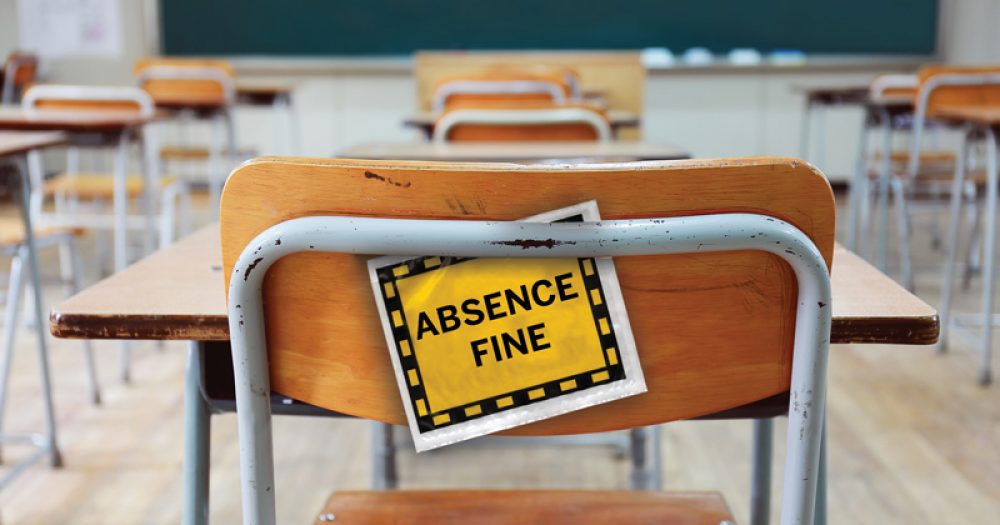The number of fines issued for school absence crashed by 90 per cent in the first half-term of this year, but councils still raked in tens of thousands from parents.
Absence fines were waived during partial school closures between March and July, but the government reinstated them from September in a bid to encourage pupils back to school.
Now data obtained under the freedom of information act by Schools Week shows that although councils issued thousands of fines in the first half-term of the academic year, the total number was about one-tenth of the number issued during the same period last year.
Half of the nation’s councils with responsibility for education responded, reporting 2,699 fines between them during the first half term of this year and income of over £70,000. The same councils issued 27,505 fines in the first half term of 2019-20.
It comes after data published by the Department for Education over the course of this term showed school attendance has fallen, as more pupils have been sent home to self-isolate and more schools have partially closed due to coronavirus outbreaks.
However, several councils pointed out that the fines issued in their areas were for unauthorised holiday absences, not for pupils kept at home by concerned parents.
Leaders this week warned that schools were “caught between a rock and a hard place” over fines for non-attendance.
“On the one hand, this is the last thing they will want do at any time, but particularly in the present circumstances, but on the other hand they have been specifically told by the government that school attendance is mandatory, and that they are responsible for recording attendance and following up absence,” said Geoff Barton, general secretary of the ASCL union.
James Bowen, director of policy at the NAHT, said the significant decline in the number of fines issued “comes as no surprise”, and added that “many schools have taken the decision not to use fines this term”.
“They know that the blunt instrument of a fine is unlikely to be an effective intervention in the current climate. Unauthorised holidays are a different matter, and an area where schools have little discretion.”
Although the national picture shows the number of fines reduced by around 90 per cent overall, some councils did not see such a large drop.
In Lincolnshire, 156 fines were issued in the first half-term of the academic year, down from 437 in the same period the previous year, a decrease of 64 per cent. The council made £5,640 in fine revenue so far this year.
Martin Smith, the council’s assistant director for education, said the government had “made it clear that it expects children to be in school, and the rules around attendance have not changed”.
“However, we have had far fewer referrals from schools this term regarding unauthorised absence, which explains the drop in the number of fines. Ordinarily schools do not inform us of the reasons given for such unauthorised absences, so it’s not possible to say whether these are related to Covid or other issues.”
And in Barnsley, the number of fines issued in the first half-term of this year, 119, was actually an increase of 25 per cent on the same period last year.
But councillor Margaret Bruff, cabinet spokesperson for children’s services, said the increase was due to an “improvement of processes” which “has meant that notices are issued in a more timely fashion”. She said they were down to a “leave of absence”, rather than Covid related.
Suffolk council issued 298 fines in the first half-term, down from 2,917 in the previous year.
A spokesperson said the fines “will have been issued for different reasons and many will have been where there have been concerns prior to the Covid-19 pandemic”.
“The decision to issue an FPN will be made by a headteacher and an FPN will only be brought forward where there is evidence to do so and all efforts to work with a family have been made.”
Education secretary Gavin Williamson warned earlier this year that pupils from the most disadvantaged backgrounds would suffer if the government did not enforce mandatory attendance in schools.







Your thoughts